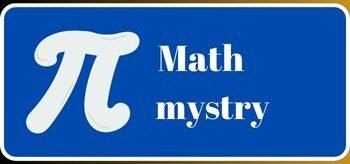Currently Empty: $0.00
- Description
- Curriculum
- FAQ
- Notice
- Reviews
Number theory is a branch of mathematics that investigates integers and integer-valued functions, focusing on the properties, relationships, and structure of numbers. Key topics include prime numbers, divisibility, modular arithmetic, and prime distribution. Core questions in number theory often involve solving Diophantine equations and exploring the characteristics of number sequences.
Number Theory_Course is designed to give students a complete understanding of integers, prime numbers, divisibility, modular arithmetic, and Diophantine equations. This Number Theory_Course lays the foundation for both theoretical and applied mathematics, helping learners develop critical thinking, logical reasoning, and advanced problem-solving skills.
By starting with a Number Theory_Course, students gain the confidence to tackle complex mathematical concepts while connecting theory to real-world applications in cryptography, coding theory, and algorithm design. Number theory provides a foundation for understanding the patterns and behavior of integers in both theoretical and applied contexts.
Number Theory_Course provides students with a structured approach to understanding the fascinating world of integers, prime numbers, divisibility, modular arithmetic, and Diophantine equations. This course lays the foundation for both theoretical and applied mathematics, helping learners develop critical thinking, logical reasoning, and problem-solving skills that are essential for advanced studies in mathematics, computer science, cryptography, and related fields. By starting with a Number Theory_Course, students gain the knowledge and confidence to explore complex mathematical concepts while connecting theory to real-world applications.
The field encompasses various sub-areas, such as elementary, analytic, algebraic, and computational number theory, each providing a unique approach to the study of numbers. Known for its depth and beauty, number theory also has practical applications in cryptography, coding theory, and computer science, making it a vital part of both pure and applied mathematics.
Students studying number theory gain analytical skills and logical reasoning that are essential for advanced mathematics and related scientific fields.
What Will I Learn?
In a study of number theory, you will learn to explore the following core concepts:
- Divisibility and Prime Numbers: Gaining insight into properties of divisibility, prime numbers, greatest common divisors, and unique factorization.
- Modular Arithmetic: Learning about congruences, modular arithmetic, and how to apply them in solving integer equations.
- Diophantine Equations: Studying techniques to find integer solutions for equations, including both linear and quadratic Diophantine equations.
- Number Theoretic Functions: Exploring functions like Euler’s totient function, the Möbius function, and other arithmetic functions that uncover unique integer properties.
- Congruences and the Chinese Remainder Theorem: Working with systems of congruences and applying the Chinese Remainder Theorem to solve problems.
- Quadratic Reciprocity and Higher-Order Congruences: Understanding quadratic residues, the law of quadratic reciprocity, and higher-order congruences.
- Advanced Topics: Engaging with analytic and algebraic number theory topics such as prime distribution, continued fractions, and p-adic numbers.
- Applications: Applying number theory concepts to fields like cryptography, coding theory, and error-correcting codes.
By the end, you’ll have a comprehensive foundation in number theory, appreciating both its theoretical foundations and practical applications.
Targeted Audience
The target audience for a number theory course or resource generally includes:
Students: Advanced undergraduate and graduate students in mathematics, especially those with an interest in algebra, analysis, and theoretical mathematics.
Researchers: Academics and researchers in mathematics and computer science who require a solid understanding of number theory for fields such as cryptography, algorithm development, and mathematical proofs.
Mathematicians: Professionals seeking to deepen their understanding of number theory and explore its advanced concepts and applications.
Applied Scientists: Individuals in data science, cryptography, and computer security who utilize number theory in practical problem-solving.
Benefits of Enrolling in a Number Theory_Course
Enrolling in a Number Theory_Course helps students gain a structured understanding of integers, prime numbers, divisibility, and modular arithmetic. This Number Theory_Course not only strengthens analytical and logical reasoning skills but also prepares learners for tackling advanced mathematical problems, research, and applications in cryptography and computer science. By studying a Number Theory_Course, students can build a solid foundation for academic excellence and professional growth in mathematical and technical fields.
Real-World Applications of the Number Theory_ Course
The Number Theory_Course bridges the gap between theoretical concepts and practical applications. Students in a Number Theory_Course learn how to apply their knowledge to coding theory, cryptography, algorithm design, and error-correcting codes. Completing a Number Theory_Course equips learners with critical problem-solving skills and a deeper appreciation for the structure and patterns of numbers, making them well-prepared for careers in data science, cybersecurity, and advanced mathematical research.
What is an LMS (Learning Management System)?
A Learning Management System (LMS) is a software application that facilitates the administration, documentation, tracking, and delivery of educational courses and training programs. It provides a centralized platform for educators or organizations to manage and deliver content, assess learner progress, and facilitate communication.
What are the key features of a Learning Management System?
Common features of an LMS include content management, user management, assessment tools, reporting and analytics, communication tools (such as forums or messaging), and integration capabilities with other software systems. These features collectively support efficient and organized online learning experiences.
How can an LMS benefit educational institutions or businesses?
LMS streamlines training and educational processes, allowing institutions and businesses to deliver consistent content, assess learner performance, and monitor progress. It facilitates remote learning, personalized learning paths, and often reduces administrative overhead, making it an essential tool for scalability and efficiency.
What is the role of an LMS in employee training and development?
In the corporate setting, an LMS plays a crucial role in employee training and development. It enables organizations to create, deliver, and track training programs, ensuring employees have access to relevant resources. LMS also supports compliance training, skill development, and ongoing learning initiatives.
1. Feature Alert!
Explore Our Latest Additions – Unleash Enhanced Functionality Today
2. Maintenance Notice
Scheduled Downtime on [Date]. Thanks for Your Patience.
3. Upcoming Event!
Join Us for [Event Name]. Save the Date and Get Ready for an Exciting Experience!
Stars 5
1
Stars 4
0
Stars 3
0
Stars 2
0
Stars 1
0



